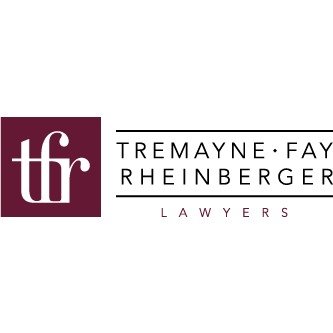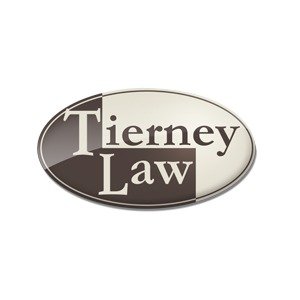Best Divorce & Separation Lawyers in Hobart
Share your needs with us, get contacted by law firms.
Free. Takes 2 min.
Free Guide to Hiring a Family Lawyer
List of the best lawyers in Hobart, Australia
About Divorce & Separation Law in Hobart, Australia
Divorce and separation in Hobart, Australia are governed under the Family Law Act 1975, which applies across all of Australia. This legal framework covers a wide range of issues including property division, child custody, and financial maintenance. In Hobart, the Federal Circuit and Family Court of Australia (FCFCA) handles most divorce and separation cases. It's important to note that Australia follows a no-fault divorce system, meaning that the reasons for the end of the marriage aren't considered in the application for divorce.
Why You May Need a Lawyer
Legal advice is often necessary in divorce and separation cases due to the complexity and emotional nature of the proceedings. A lawyer can help you understand your rights and responsibilities, particularly regarding the division of property and arrangements for children. Common scenarios requiring legal assistance include contested divorces, disagreement on child custody arrangements, disputes over property settlements, and cases involving family violence. A lawyer can provide guidance, represent you in court, and help negotiate on your behalf.
Local Laws Overview
Hobart, like the rest of Australia, operates under the Family Law Act 1975 for matters of divorce and separation. This legislation outlines the conditions for obtaining a divorce, which includes living separately and apart for at least 12 months. It also deals with parental responsibilities, focusing on the best interests of the child. Property settlements are based on a just and equitable distribution, considering several factors including the contribution of each party and future needs. Additionally, de facto relationships in Tasmania are recognized and treated similarly to marriages for property and child matters under the Acts Interpretation Act 1931 (Tas).
Frequently Asked Questions
What is the process for filing for divorce in Hobart?
To file for divorce in Hobart, you need to complete and lodge an Application for Divorce through the Federal Circuit and Family Court of Australia. This can be done online through the Commonwealth Courts Portal. You must have been separated for at least 12 months.
How can we agree on child custody arrangements?
Parents can agree on child custody arrangements and formalize them as a parenting plan or consent orders. If consensus isn't possible, the Court may be involved to make a decision based on the child's best interests.
How is property divided after separation?
Property is divided based on a four-step process: identifying and valuing assets, considering contributions from both parties, assessing future needs, and achieving a fair distribution. Negotiations can be made privately or with legal assistance, and the court can intervene if necessary.
What are my rights regarding spousal maintenance?
Spousal maintenance can be claimed if one party is unable to support themselves adequately, and the other has the means to provide assistance. There's no automatic entitlement, and applications are assessed on a case-by-case basis.
Do I need to go to court to finalize a divorce?
If the application for divorce is uncontested and there are no children under 18, you typically won't need to attend court. However, court attendance might be required if there are disputes.
Can we get a divorce if we are still living together?
You can apply for a divorce if you've been separated for 12 months, even if you live in the same house. Evidence of separation under one roof may need to be provided.
How can I protect myself during a separation?
It's advised to seek legal advice, protect personal financial information, and reach formal agreements regarding property and children. Consider accessing mediation or family counseling services.
What happens if one partner doesn’t agree to divorce?
In Australia, you can proceed with a divorce application even if your spouse does not consent, provided that separation requirements are met and the documents are served properly.
What is the difference between a divorce and an annulment?
A divorce legally ends a valid marriage, whereas an annulment declares that the marriage was never legally valid. Annulments are rare and subject to specific circumstances.
Is there support available for dealing with family violence?
Australia offers various support services for those experiencing family violence. You can seek legal protection through restraining orders and access counseling and support services for assistance.
Additional Resources
There are several resources available in Hobart for individuals dealing with divorce and separation. The Family Relationships Advice Line offers guidance on parenting arrangements. Relationships Australia provides counseling and dispute resolution services. Legal Aid Tasmania can offer legal assistance for those eligible, and community legal centers provide resources and support. Additionally, accessing the Commonwealth Courts Portal will provide necessary forms and guidance on legal processes.
Next Steps
If you require legal assistance with divorce and separation, it’s advisable to consult with a family lawyer familiar with Tasmanian and federal laws. Start by gathering necessary documents such as marriage certificates and financial records. Consider booking an initial consultation with a lawyer to discuss your situation. If mediation or counseling may benefit your case, explore those options as well. Remember, early legal advice can prevent complications and contribute to a fair resolution.
Lawzana helps you find the best lawyers and law firms in Hobart through a curated and pre-screened list of qualified legal professionals. Our platform offers rankings and detailed profiles of attorneys and law firms, allowing you to compare based on practice areas, including Divorce & Separation, experience, and client feedback.
Each profile includes a description of the firm's areas of practice, client reviews, team members and partners, year of establishment, spoken languages, office locations, contact information, social media presence, and any published articles or resources. Most firms on our platform speak English and are experienced in both local and international legal matters.
Get a quote from top-rated law firms in Hobart, Australia — quickly, securely, and without unnecessary hassle.
Disclaimer:
The information provided on this page is for general informational purposes only and does not constitute legal advice. While we strive to ensure the accuracy and relevance of the content, legal information may change over time, and interpretations of the law can vary. You should always consult with a qualified legal professional for advice specific to your situation.
We disclaim all liability for actions taken or not taken based on the content of this page. If you believe any information is incorrect or outdated, please contact us, and we will review and update it where appropriate.

















